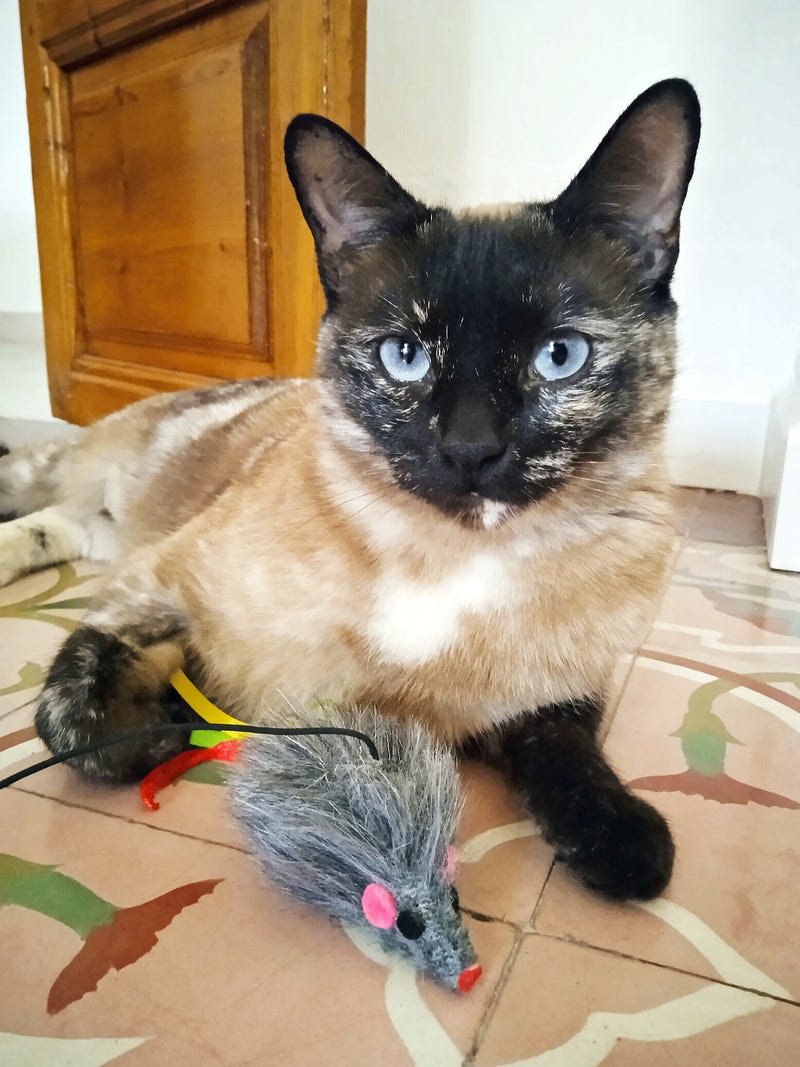Animal Psychology
Cat Lovers?
What do we understand by animal psychology? It is the study of animals in their natural habitat. We study how animals interact with each other and also in the environment around them, and why they behave in a certain way.
In this, my first article, I want to talk about animal psychology in cats. To set the context, I will start with a brief history about them. Domestic cats descend from wild cats that began taking advantage of the abundance of mice around corn stores in the early civilizations of the Middle East and North Africa, about 4,000 years ago. Currently, domestic cats spend their entire lives being a very important part of our family; their lifestyle as solitary hunters of their ancestors is far behind.
Animal psychology in cats shows that both humans and other animals can be shy or extroverted. It all depends on the personality they possess.
Feline personality traits:
· The shy one: Shy cats keep their distance from humans; they prefer to curl up in a corner and observe everything from there. When newly adopted, it’s advisable to approach them cautiously so they see that nothing is wrong, and from then on, let them approach when they want to. These cats are very easily frightened, so they get nervous easily. It’s better not to make sudden movements or loud noises.
· The outgoing one: Outgoing cats have no problem approaching humans or other cats. They are active and curious, not afraid of anything, and love to investigate and play, even with children, although they obviously still don’t like having their tails pulled… They won’t hesitate to seek refuge in your arms if they wish.
· The calm one: Calm cats are balanced, not easily disturbed, and get along well with other cats. They don’t let things affect them, so they don’t suffer from stress. They take everything calmly and quietly; they could spend hours in their basket without meowing, so they are also very good travel companions.
· The whimsical one: Whimsical cats are sensitive and very susceptible. If they become fixated on something and you try to take it away, they’ll get angry and it will last for hours. Also, they are possessive, so they firmly believe that something is theirs and won’t let anyone else touch it.
Cats are entirely self-sufficient animals; all they need is their food and a suitable place to do their business. Their personality is strong and unique, so they express affection differently than expected. Animal psychology indicates that cats control their emotions, are self-sufficient and quiet, as well as being very clean animals. We won’t find two cats that are completely the same; however, there are certain characteristic traits of cats that may stand out in each of them in some way.
Like all mammals, cats need to feel satisfied to be happy, so it would be important for them to be able to regularly engage in their innate behaviors, such as feeding, physical contact, grooming, and play, as these are behaviors that your cat loves to do and can do with you to strengthen the bond; all of these are part of the fun of having a cat and taking care of it.
Overall, cats tend to be perceptive and cunning, self-sufficient, quiet, and very clean. But, in addition, they have a great memory, so past experiences will be decisive in the development of their personality (and, in some cases, certain traumas). If a cat has had a bad experience with a person or a specific situation, it will become distrustful and withdrawn. Therefore, it is important, in all cases, for the animal to feel loved and cared for, so that it can grow up happy and secure.
Similarly, although they are very independent and it’s advisable to let them do as they please to avoid stressing them, cats need a minimum of education and discipline, so we must teach them from the beginning what they can or cannot do. This will establish a beautiful relationship of mutual respect between the cat and its owner. Although the process will require you to arm yourself with love and patience, as if you were educating a child, in the long run, you will see that it is worth taking that time to teach your cat.
It is said that cats raised with humans are capable of developing their intelligence much more than wild cats. They learn through imitation and observation, combining these aspects with their own instinct. For this reason, cats communicate with us through their body language. They tell us all sorts of things with the meow they emit at each moment, with the position of their tail and ears, the expression on their face… Additionally, they have a great sense of smell, which allows them to even detect who they should approach and who they shouldn’t.
We have often heard that cats are not affectionate animals, but that is nothing more than a myth. The reality indicates that they are extremely affectionate animals, who are also independent and self-sufficient.
I don’t want to leave this article without first introducing myself and, of course, my cat. My name is Lorena Torres; I am new to this platform and I start with a lot of enthusiasm and excitement. And she is Mini, my cat, a very important part of my family. I hope you liked it.

